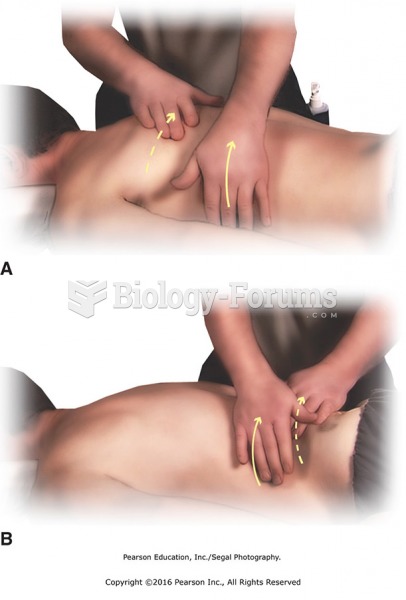|
|
|
The B-complex vitamins and vitamin C are not stored in the body and must be replaced each day.
Hypertension is a silent killer because it is deadly and has no significant early symptoms. The danger from hypertension is the extra load on the heart, which can lead to hypertensive heart disease and kidney damage. This occurs without any major symptoms until the high blood pressure becomes extreme. Regular blood pressure checks are an important method of catching hypertension before it can kill you.
Barbituric acid, the base material of barbiturates, was first synthesized in 1863 by Adolph von Bayer. His company later went on to synthesize aspirin for the first time, and Bayer aspirin is still a popular brand today.
Lower drug doses for elderly patients should be used first, with titrations of the dose as tolerated to prevent unwanted drug-related pharmacodynamic effects.
Amoebae are the simplest type of protozoans, and are characterized by a feeding and dividing trophozoite stage that moves by temporary extensions called pseudopodia or false feet.
 Many households today include young adults who have not moved out of their parents’ homes (or who ...
Many households today include young adults who have not moved out of their parents’ homes (or who ...
 Use friction to mobilize the entire scalp. Place the fingers on the scalp, and move the skin over ...
Use friction to mobilize the entire scalp. Place the fingers on the scalp, and move the skin over ...





